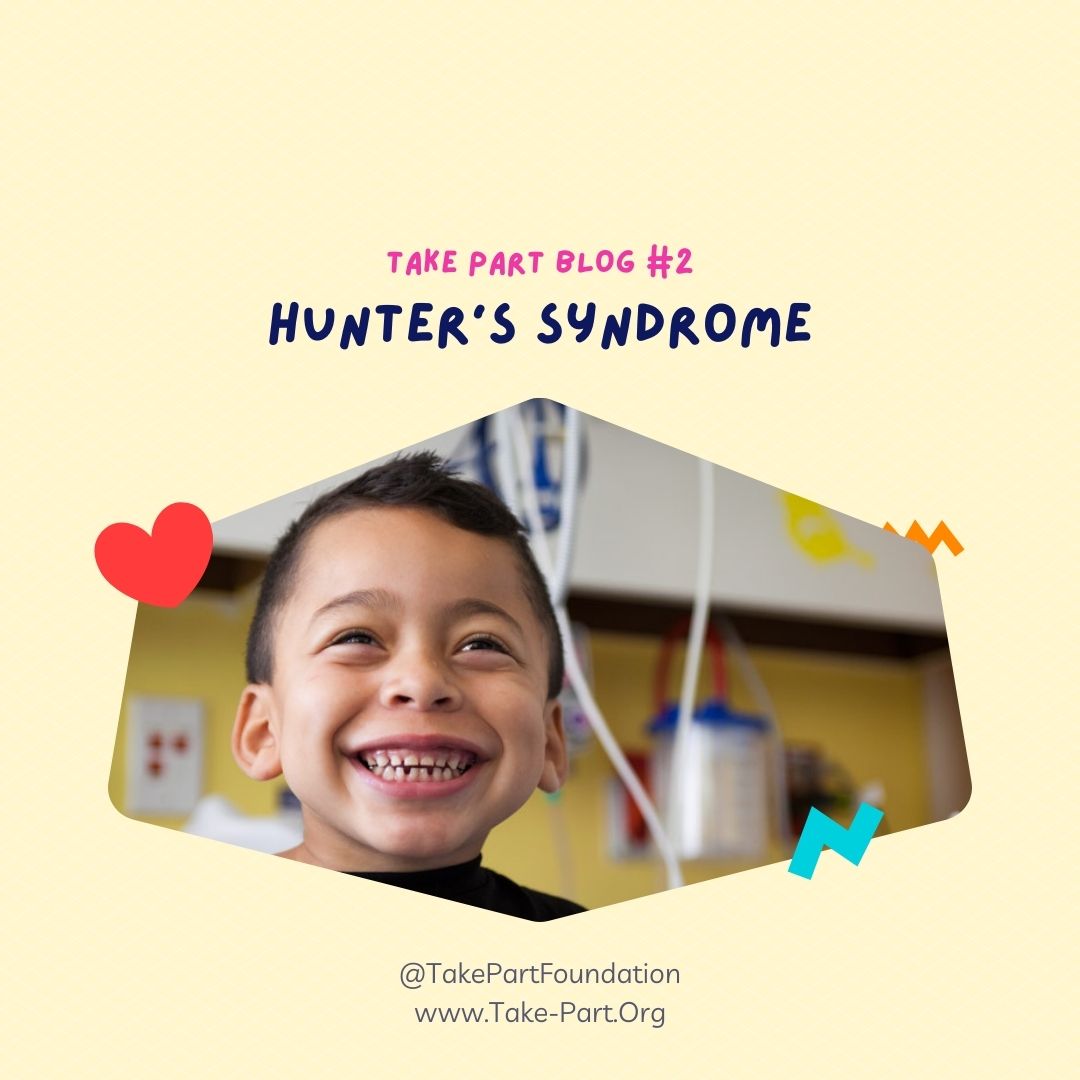Medical Information about Hunter Syndrome:
With so many confusing things out on the internet, we also want you to also remember that Take Part supports children like yours on a day-to-day basis! If you want people to know the TRUTH of what your child is going through, go ahead and create a warrior profile through our website. This can be used to raise awareness on social media, or simply just shared between friends and family for updates.
As a team, none of us ARE doctors; however we work with some amazing medical professionals that have given us more insight below. Please continue reading and use the information to navigate your own personal journey or share with anyone you may know may benefit.
Hunter’s syndrome is also called Mucopolysaccharidosis type II or MPS-II. It is a rare genetic disorder which is caused due to a faulty or non-functional enzyme. This abnormality results from a gene mutation passed on to your child from the mother. With this abnormality, your child’s body can not digest carbohydrates properly. The sugar molecules are then accumulated in the tissues or organs which can damage the mental and physical abilities and development. This disorder would always occur in your male child. Regarding the severity of the disease, there are two types: the mild type and the severe type affecting different organs and tissues or the severe type which causes intellectual decline and progresses more rapidly. In the latter version, their life expectancy is between 10 to 20 years of age.
Symptoms
If your child has a severe form of disease, then the symptoms would appear anywhere from 18 months to 4 years of age but if the condition is milder then the symptoms would appear around 2 years of age or later. Your child might show the symptoms of:
- Broad nose and large rounded cheeks
- Macroglossia or enlarged tongue
- Hydrocephalus and macrocephaly
- Spinal stenosis and heart valve damage
- Ear infections and hearing loss
- Bones thickening and joints problem
- Different hernias
Diagnosis
The diagnosis of the MPS-II in your child could not be made by physical examination. The diagnosis could be confirmed by:
- Urine test to check for glycosaminoglycans levels or sugar molecules
- Blood tests to check the activity of enzyme
- Molecular genetic testing to check for the mutation in gene (IDS gene)
Treatment and management
The treatment of your child with hunter syndrome depends upon the symptoms and severity of the condition. The treatment options include following:
- Enzyme replacement therapy using Elaprase which is an FDA approved treatment
- Surgery to remove hernias or to correct the joints
- Physical or occupational therapies for different deformities
- Genetic counselling for the families with MPS-II children
Prognosis
As there is no cure of hunter syndrome, the severe cases could be life threatening. For most of the children, treatments with medications, surgery or physical therapy could improve achieving the challenges presented by disease and to improve the quality of life1.
What is the inheritance pattern?
This disorder is inherited in X-linked recessive form because the gene responsible for this disorder is located on the X chromosome. Since it is doubtful that females would have got two mutated copies of the responsible gene, your male child would be affected by this disorder much more commonly than females.
Websites you can use for support:
https://www.hunterpatients.com/managing-hunter-syndrome/hunter-syndrome-resources-en/
https://huntersyndromefoundation.org/
https://projectalive.org/
Facebook groups you can use for support:
https://www.facebook.com/groups/168086956579511
https://www.facebook.com/MPSIIandYou
